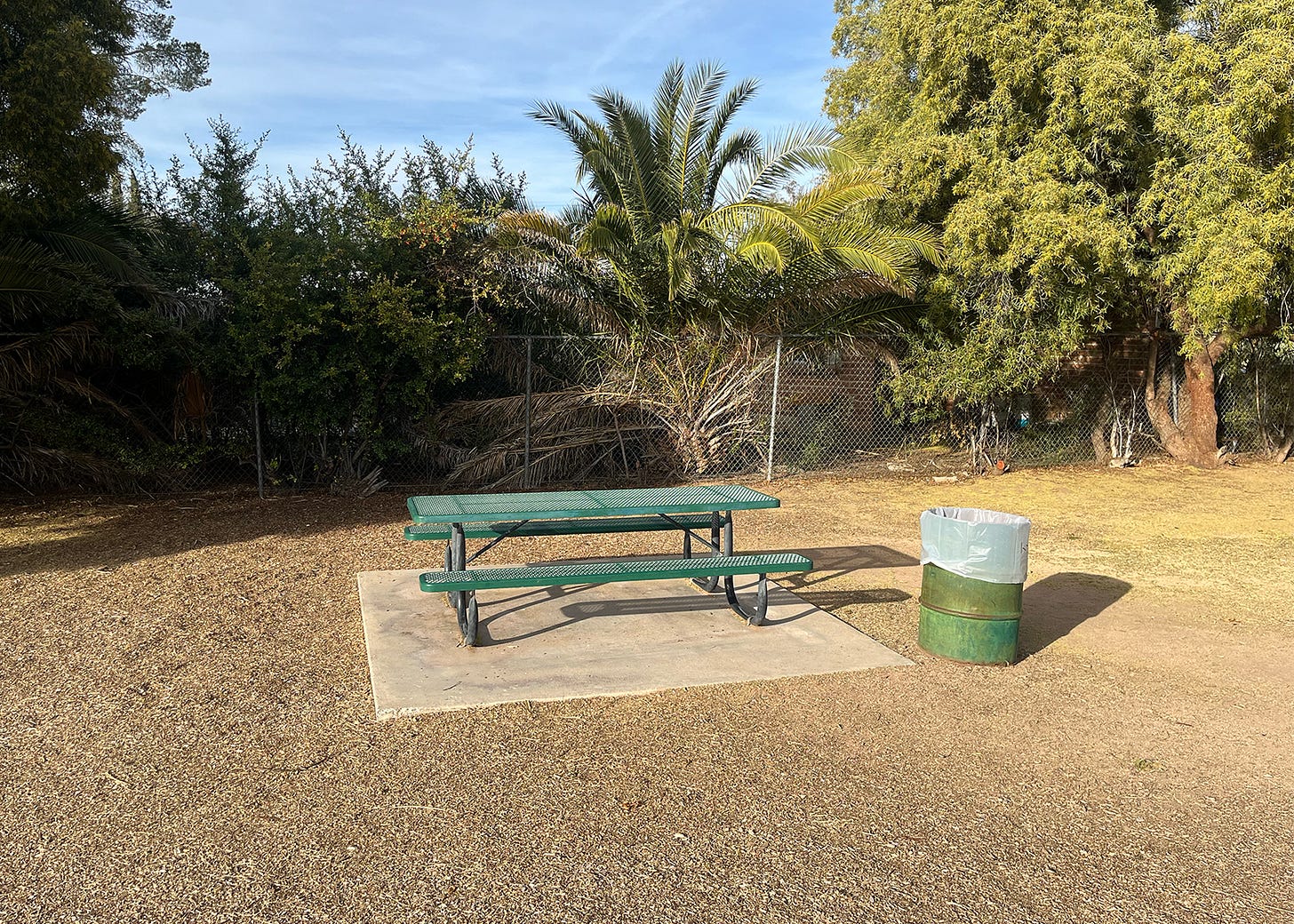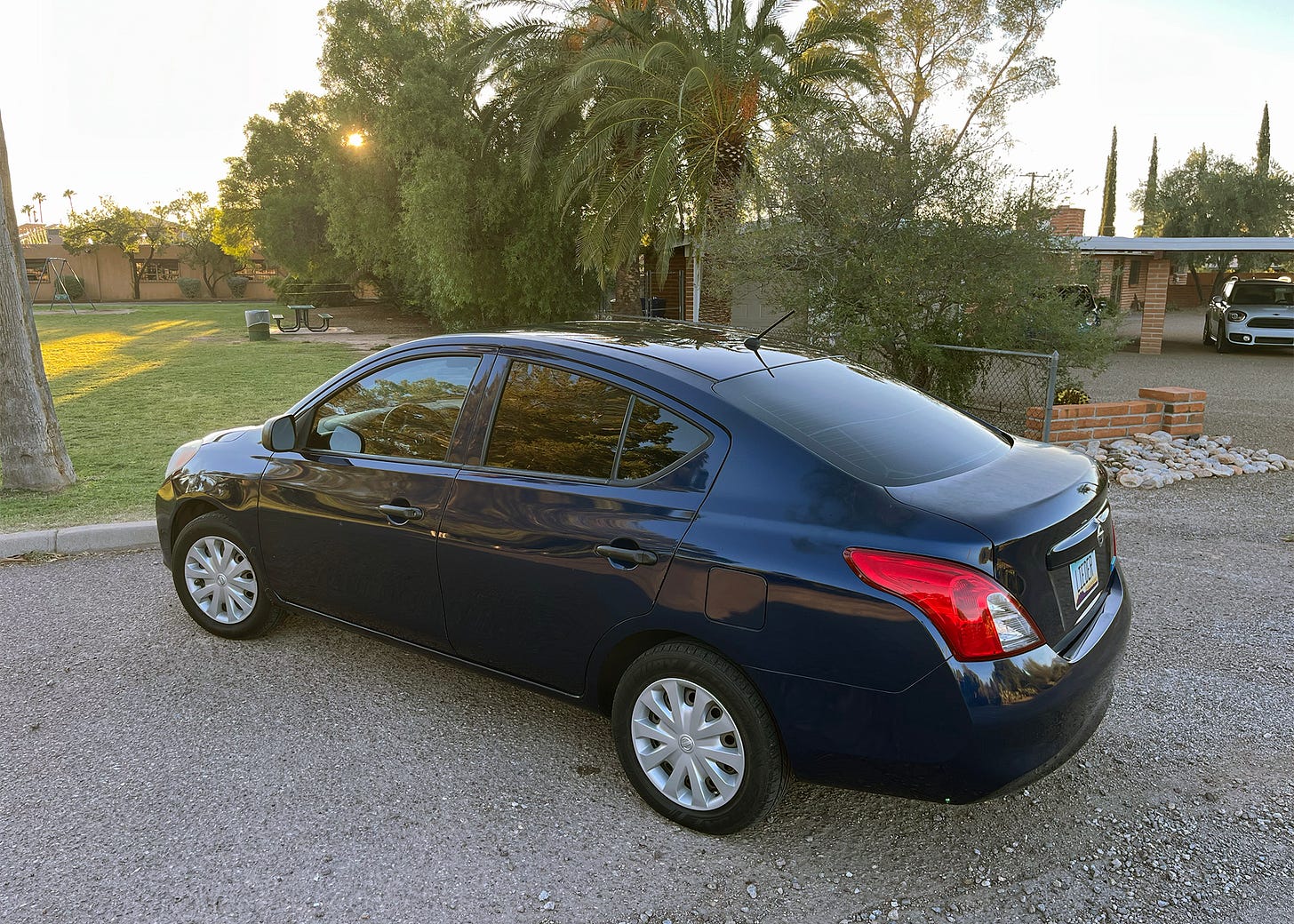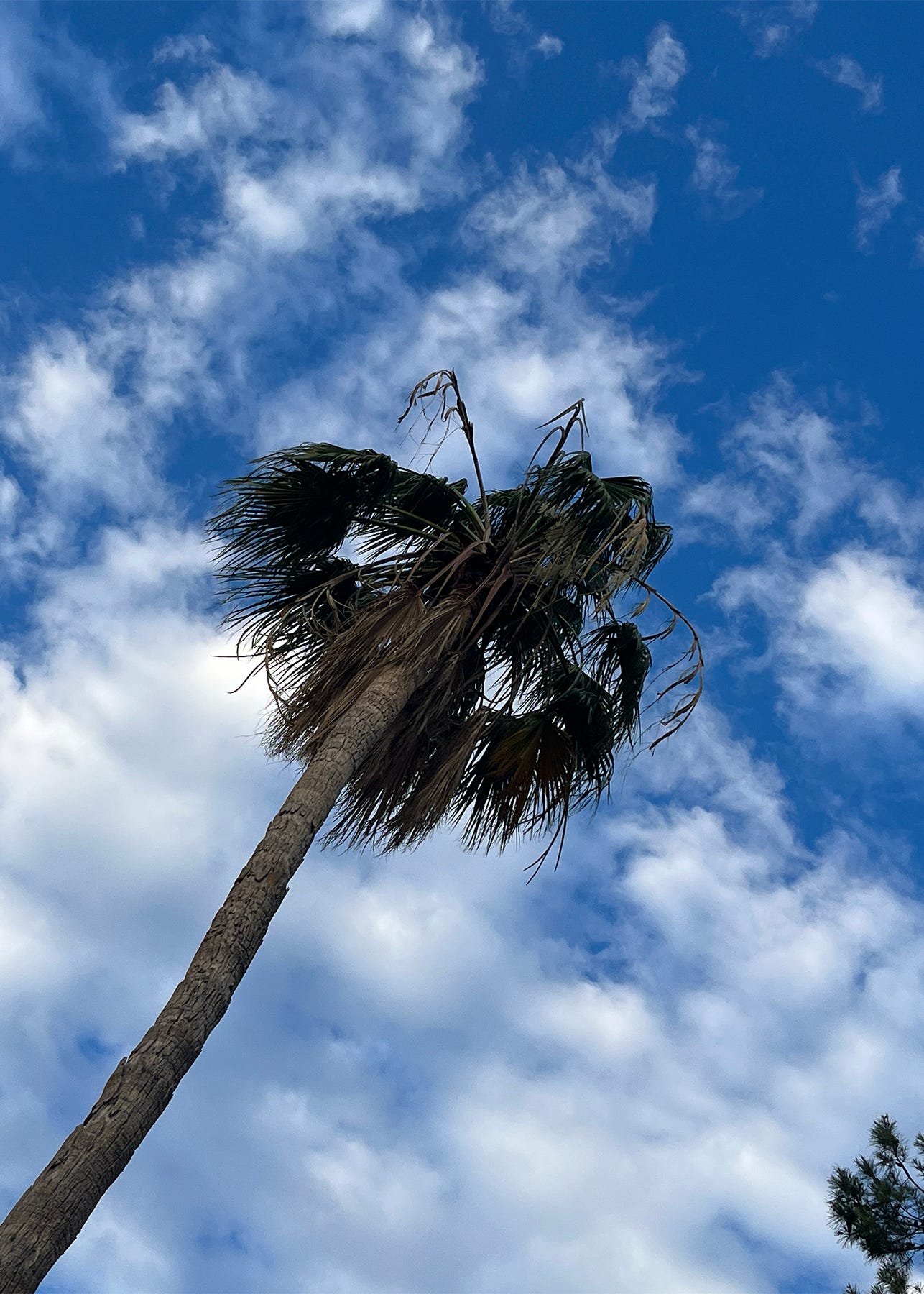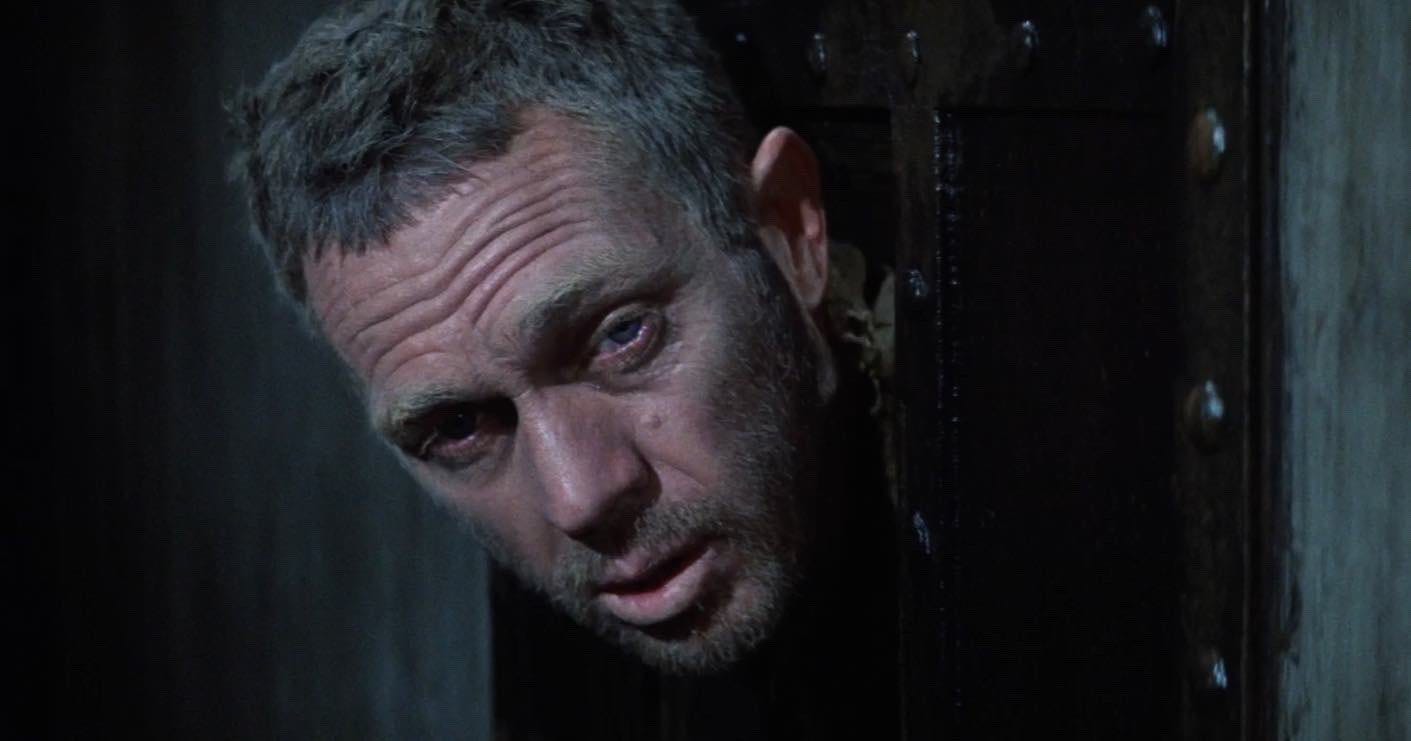Wanting To Die Was Easy. Choosing To Live Was Much Harder.
The day I decided to stop being suicidal, I thought my life would get better. It got worse.
For almost all of my life, I can’t remember a single day when I didn’t want to die.
Some people might think this is a strange thing to admit openly. To the few people I have said this to out loud, they seemed shocked that I said it.
To me, though, what’s strange is that more people don’t admit this openly or say it out loud.
Who hasn’t wanted to die? I am genuinely confused by this.
A few years ago, I was talking to a man a few years older than me about this concept, but only in very loose, generic terms, without revealing my own thoughts on the subject. We were just talking about suicide in general.
“I’ve never been suicidal,” he told me. “I can’t imagine that. I’ve never wanted to die.”
This really surprised me.
"Never?" I asked. “Not even once?” I almost didn’t believe him.
He paused for a second or two, thought about it, then said: “Nah. Never. Not even once.”
I have no idea what that’s like.
When I meet people who say things like this, I judge them harshly and think one of two things:
This person must live an unbelievably privileged life.
This person must be an idiot.
The older I get, the more I believe that they’re both true, but I tend to give more weight to the second one. People who have never wanted to die—who have never contemplated suicide—must surely be fools.
They have to be. Have they not seen what goes on in the world?
They must be supremely ignorant to either not know that the world is filled with war, famine, and pestilence, that life is indeed “Nasty, brutish, and short,” or, maybe, they know all of this and don’t care, which is far worse.
Sometimes, I hear people talk about being optimistic despite all the bad going on in the world. “Just turn off the news,” they say.
To a certain extent, I agree with that.
Yes, for the most part, the bad things happening over there really don’t affect us personally, do they?
Yes, we can just turn off the TV and ignore the collective misery of the people who don’t have the good fortune of just blocking it out and “choosing to be optimistic.”
But even so, I wonder, what about here and now?
When I look at my own life, my conclusion is: even locally, in my own town, and in my own experience, the world is still a terrible place, filled with mean people and bullies who want to hurt me, take advantage of me, and use me to help them get what they want.
It’s always been that way.
Is that not everyone else’s experience? Do other people know something different? How? What must that be like?
Life is incredibly painful.
What’s worse—and what may be unclear to those who aren’t paying attention—we didn’t ask to be born, yet we’re responsible for everything we do, and the actions we take will leave ripples across the rest of eternity.
I agree with Sartre: man is condemned to be free. How is that not utterly terrifying?
A few years ago, a woman I knew died by suicide. Her life was painful to watch for the short time I knew her (though I won’t get into all of that here) and was far more painful to her friends and family members who knew her for longer than I did.
When I found out that she had made the decision to end her life, I was very sad. But I was not surprised. I’m not surprised when anyone makes that decision. What’s more surprising to me is that more people choose not to end their lives.
When I told a man I knew about the news of this woman and how I would be going to her funeral, he said something fascinating that still haunts me, a little bit, to this day.
“Yeah, I never really understood mental illness,” he said.
What?
I was shocked. That seemed like a non-sequitur.
I never said she had a mental illness.
Where did he get that idea? Why did he make that assumption? What does mental illness have to do with suicide?
Certainly, death by suicide and mental illness are correlated. But suicide is not caused by mental illness. His assumption that it was felt almost insulting.
About a decade ago, when I lived in Colorado, I took a tour of our local morgue. It was absolutely fascinating. I learned all kinds of things, including how autopsies work and the shocking fact that all the deceased are drug-tested, no matter the cause of death.
During a Q&A session with our coroner, I asked him about suicides and how and why people choose to end their lives. His response (paraphrased here, to the best of my memory) was extremely illuminating:
“Males and females both commit suicide, of course, but for different reasons. With women, a lot of times, there are usually underlying causes, and multiple “false alarms” where they have “suicide attempts” that they aren’t really serious about and they hope to get caught because they don’t really want to end their lives. It’s really just a cry for help.”
“Men are different, though. Sometimes, with young men, especially teenagers, a suicide seems like it comes out of nowhere. Parents often tell me: ‘But he seemed so happy! We thought everything was fine.” Then I’ll tell them, “Well, maybe everything was fine. But then, one night, something bad happened, and he made a rash decision. Oftentimes, this is associated with drugs or alcohol, and they’ll make a bad judgment call, and it’s all over.”
I thought this was fascinating because it pushed back against the narrative that someone can’t both have a “happy” life and also want to end their lives.
This is true in my experience as well, both as an observer and for me personally.
When I worked in hospitality, for example, I had a coworker who got angry that his girlfriend was “cheating” on him, and, in his anger, he got raging drunk, broke into a friend's house, stole his gun, and shot himself in the head.
Nobody saw that coming.
When I heard about it afterward, I couldn’t even believe it. It was so outrageous, so foolish, so stupid, so short-sighted, and such an unbelievable overreaction to what, in the long run, was a very small problem.
He was only 17. He could barely even drive a car.
How on earth could a kid like this end his life before it had even started?
I can’t say definitively because:
I’m not him
He never told me
I don’t ever, ever, EVER make rash decisions like this.
I’m the opposite of impulsive: I take forever to make decisions—so long that it makes most people I know mad. They actually get angry with me and sometimes literally yell at me because of it.
But aside from all that, the fact that a young man was bopping along in life successfully, seemingly happily, yet he all of a sudden decides to end his life for no apparent reason (or for a very stupid reason) is actually par for the course. It’s kind of common.
For me, though, I’ve never had a rash thought like that before, but it’s always been a slow burn.
I’d be better off dead. My life would be better if it were over. My friends and family would be better off without me. It would be an easy way out for me to just end my life.
That narrative has filled my head from the earliest days of my life. I don’t know any other way. I can’t remember not thinking that.
Sometimes, it loomed with a heavy presence that was very dark and oppressive, like a gray cloud that not only obscured the sunshine but also filled the air with a thick fog that constricted my lungs and made it hard to breathe.
Sometimes, it was a still small voice in the background. Hiding, but always present. It was never not there.
Sometimes, I have indeed been almost at the brink of ending it all, completely alone, utterly hopeless, and fully consumed with the thought that life is not worth living and it’s time to go.
Waking up with a painful life, with little hope and no light at the end of the tunnel, it’s just so hard to imagine why life is worth living. Why not just make it all stop?
By the way, in case anyone wonders, I am familiar with suicide prevention and understanding the root causes and all that… I even took a class on suicide prevention and got a certification and learned about how to identify suicidal ideation and suicide-vulnerable people, and was taught how to speak to them, what questions to ask, (and what not to), and what to say (and what not to).
But none of that helped me.
I’ve heard it all before, and it doesn’t change much.
I imagine it’s like a medical doctor who gets addicted to opiates. Of course, he knows the dangers. Of course, he knows the reasons not to start using opiates in the first place. But of course, in the moment, when it matters most, all of that head knowledge means absolutely nothing.
I had a head full of knowledge about how suicide hurts people, why killing yourself doesn’t end the pain, and how it’s a permanent solution to a temporary problem; think of the people who are counting on you, blah, blah, blah…
I know all of that. Duh.
For years, I’ve written about the suicides of people I know that have affected me personally: by my latest count, I know at least eight people who died by suicide. I’m affected, to a certain extent, by each one of them.
And I know that it was the wrong choice in every single one of those cases. But all that head knowledge means nothing. It didn’t make any difference to me.
When my family moved from Southern Colorado to Northern Colorado in 2016 so my wife could finish her degree, that was the worst season of my adult life.
It was far worse than anything I could have imagined up until that point. Everything spiraled out of control: I was laid off from more than one company in a row, I couldn’t find a job to save my life (literally, heh), my kids were making awful choices that were causing me tremendous stress, there were some legal issues, and a lot more I don’t want to get into just now.
In that season, I spoke to police officers, social workers, attorneys, counselors, therapists, and a psychologist. Every day was darker than the day before.
Then, my wife and I both graduated from college. The pandemic hit. We moved to Arizona. My brother died.
What was supposed to be a better situation only got worse.
Everything got worse, not better, in almost every way, by every measure.
Every year—every month, it seemed—life was harder than before.
I reached a breaking point that involved a panic and/or anxiety attack that landed me in an emergency room. Medical bills piled up. We moved again to another part of the state, starting over now for the third time in a row.
Just getting out of bed seemed impossible, and that still small voice, that evil small voice that was always there in the background, which started as a whisper, became a yell.
I can end it. This can be over. Only I am choosing to prolong the misery. There is an easy way out.
For months, that lurked in the background. The lull of the siren’s song, calling me to end it all by crashing my ship on the rocks, was almost too much to resist.
I can make it stop now. It’s up to me. Nobody else has to know.
Then, last year, out of the blue—literally out of the blue—that all changed.
I got in my car one afternoon and took my iPad with me, driving around to nowhere in particular with no destination in mind and no agenda.
I drove around town aimlessly. I saw a park and decided to stop for a bit. I took some pictures of the interior and exterior of my car since I had decided to sell it and the park looked like a nice backdrop.
I snapped photos of the front, the back, the driver seat, the passenger seat, and the back bench, with the park in the background. Then, I walked over to a picnic bench and sat down and started writing some notes on my iPad.
And on September 3, 2023, at 6:00 pm, I looked up into the sky and watched the sunset. And for the first time ever, I decided to live.
I decided to say “no” to dying. To say “no” to suicide. To say “no” to ending my life. Whatever you want to call it, it was over.
Forever.
I would like to say, “It was just that simple.” But it wasn’t simple at all. It took all those cumulative moments of my life before, all 13,890 days (or 38 years and 11 days) to make that decision.
When the time came, it was very easy. But I couldn’t make that choice until I was ready. I wasn’t ready for it before.
For whatever reason, a week and a half after my 38th birthday, despite all the pain, confusion, dysfunction, and difficulty of the life I was living, I decided that death no longer had a hold on me. It was no longer attractive.
It couldn’t control me anymore. No longer would it always be there, ever lurking in the background, calling to me: “If it ever gets too hard… I’m always here.”
No.
Death, to me, is now dead. …at least if I have anything to do with it.
And while I’d love to say: “Then everything changed after that! My life got better! My finances got better! My marriage got better! Now, my children prance about the house, twirling and dancing and singing my praises,” but none of that is true.
In fact, it got worse.
I had recently been diagnosed with autism1 earlier that summer, but the full weight of that hadn’t set in yet. Hardly. My family and I were just barely scratching the surface of what that meant.
Then I went to the emergency room—again—this time for a painful mass, where, after meeting with many (Dozens? Scores?) of doctors, I was finally told: “Well, it’s either Cancer or an infection of some sort.”
CANCER?!
…and right after that, my wife was diagnosed with a medical condition that has no cure.
…and my wife and I began the hardest-yet seasons of our entire 18 years of marriage.
…and we’re still fighting with our teenagers over their life choices.
…and I’m still trying to climb out of debt acquired during the pandemic.
…and there are lots of other mundane, tedious, boring things that are hard for me but not worth sharing here.
Yet, unlike in the past, I’m steadfast in the decision I made at that random park on that random September afternoon.
There is no longer a dark voice wooing me from the abyss, tempting me to come join the hordes who have found a permanent solution to a temporary problem, even including friends of mine.
I won’t do it.
I can’t.
I’m not interested in it anymore.
The biggest surprise throughout all of this was that I thought that my life would get easier when I chose to live.
But it didn’t. It got harder.
I imagine it’s like an alcoholic who, after recovery, has to face his problems directly, sober for the first time ever. And that’s painful. Very painful.
It’s almost too painful to endure, which is why people become addicts or alcoholics in the first place. It’s too hard to cope with the shit life throws at you alone (or that’s what they tell themselves), so they need help and that’s how they find drugs or alcohol.
I understand this, at least in my own way. As far as I can tell, I’m not an addict or an alcoholic. But the way I secretly held on to suicide as a “final option” was definitely addictive behavior.
Now, I have no other option anymore.
There’s no more “Plan B.”
Taking the easy way out is completely off the table.
When I was a newly-married man, a man I knew who had a very important role in my life was diagnosed with terminal cancer. He was my mentor and a man I had bible studies with on a weekly basis. I went to him for spiritual advice, marital advice, and parenting advice.
He was a strong, powerful presence and a huge influence on me. A very tough man: a Marine who fought in Viet Nam and saw unbelievable things he couldn’t tell me, and I didn’t ask about, because I knew how horrific they were.
When he was dying, I was afraid to go visit him. The cancer was extremely aggressive, and he deteriorated unbelievably quickly. At one point, I asked his son how he was doing, and he said something that shocked me to my core and made me shudder.
“He’s not doing well, Ron. He was in so much pain the other day that he begged me to go to his house and bring him his pistol so he could blow his brains out.”
“Wow,” I said, completely unsure of how to respond.
“Was he joking?” I nearly gasped.
“I don’t know,” he said. “I think he was serious.”
“What did you tell him?” I asked.
“I told him, ‘Dad, you know I can’t do that.’” He said.
“What did he say?” I wondered.
“He said: ‘I understand. I know you can’t do that. But still, I wish you would…’ and his voice trailed off.”
I was speechless. I couldn’t imagine my own father asking me to sneak him a gun when the nurses weren’t watching so he could kill himself. …and more than that, I can’t imagine what it must be like to have to tell your own father “no” to a question like that.
I can imagine, though, at least a tiny bit, what it was like for my friend’s father to want to end his suffering. It was an agonizingly painful death, and it made me cry when I went to visit him on his deathbed for the last time.
One of the most amazing stories I’ve ever read in my life is Henri Charrière’s book “Papillon,” which is the alleged account of his life as a prisoner at Devil’s Island, the prison camp in French Guiana, and his successful escape.
While it isn’t surprising that most of the story is clearly embellished and isn’t entirely accurate, the movie with Steve McQueen and Dustin Hoffman has a few choice lines I think about frequently.
One quote in the film that McQueen says over and over is when the guards check on him from time to time, wondering if he’s alive or dead (probably hoping for the latter):
“I’M STILL HERE, YOU BASTARDS!”
Sometimes, he says it quietly to himself when he’s in solitary confinement.
Sometimes, he shouts it at the guards angrily so they can hear him and know they haven’t broken his spirit.
I’ve decided to use this as my own new mantra for my life.
“I’M STILL HERE, YOU BASTARDS!”
You’re not going to kill me.
I’m not going to kill myself.
I’m not going to go away.
I’m going to survive this.
I’m going to keep going.
I won’t stop.
And on September 3rd of this year, I’m going to quietly celebrate a one-year anniversary of choosing to live.
I wish it had been easier. It hasn’t.
But my conclusion is that wanting to die was easy. Deciding to live was much harder.
But it’s still worth it.
…and I’m still here, you bastards.
As I’m discovering, some people with autism have a massively increased risk of suicide: some autistic children are “six times more likely to have thoughts of suicide.” In my case, this may or may not factor into all of this, but that’s all part of my process of discovery.







Ron, thanks for your courage in opening up! It gives others permission to share their stories in coming out of the shadows - including me! Right now. I too, have suffered and struggled with suicide ALL my life. Both of my 2 brothers died by suicide, and it's always been a "default" for me. I've attempted twice and it's been a default -- that is -- until Feb of 2018. I consider my "release" of the spiritual nature. But, regardless, they're gone! I wrote a substack piece about suicide in May. As I was writing, I didn't know if I'd come out or not about my suicidal tendencies. It turns out I didn't. Technically, anyway. But for those close to that world, it's obvious I did. Here's a link. And again, thanks for your courage. If gives others permission.to come out of the shadows. And by doing that it can lose it's power. And it gives people permission to talk about it.. like me...just now. https://eddieburns.substack.com/p/suicide
Wow, this was really relatable to read. I used to be one of those people who was astounded anyone would ever consider suicide. Today, I understand a lot more why people would. What you said about learning about suicide prevention, all the stats, all the techniques and how they meant absolutely nothing in your head—that was exactly how I felt. The vast majority of people still do think suicide is mainly caused by mental illness, and I was educated in that, but none of that meant anything when I was feeling at my worst. And what you said about it being harder to choose to live, instead of die—that also perfectly summarizes how I felt. Choosing to try to be happier and to live is so, so much effort. I'm really glad you had that moment at the car park where you decided you were going to live. I never reached the point of seriously contemplating suicide, but it was in the background of my mind. Another interesting thing I read is that a lot of suicides are people doing it on a whim when there's an easy situation nearby: like walking by a bridge, or coming home and having the materials already ready. When they're forced to go out of their way to plan it or have obstacles, it at least temporarily delays them. So yeah, I guess even if a person has been suicidal, a lot of people choosing to die can be impulsive in that moment of decision. Thank you for writing the piece.